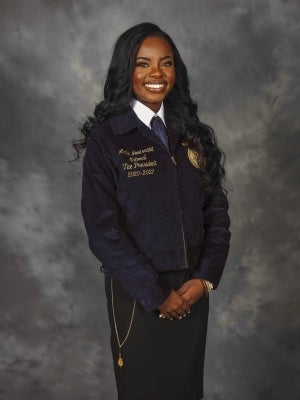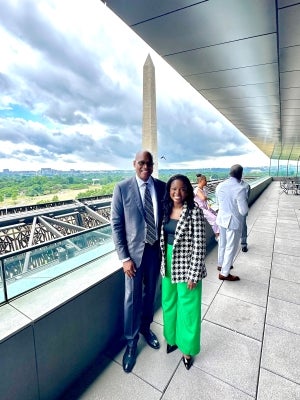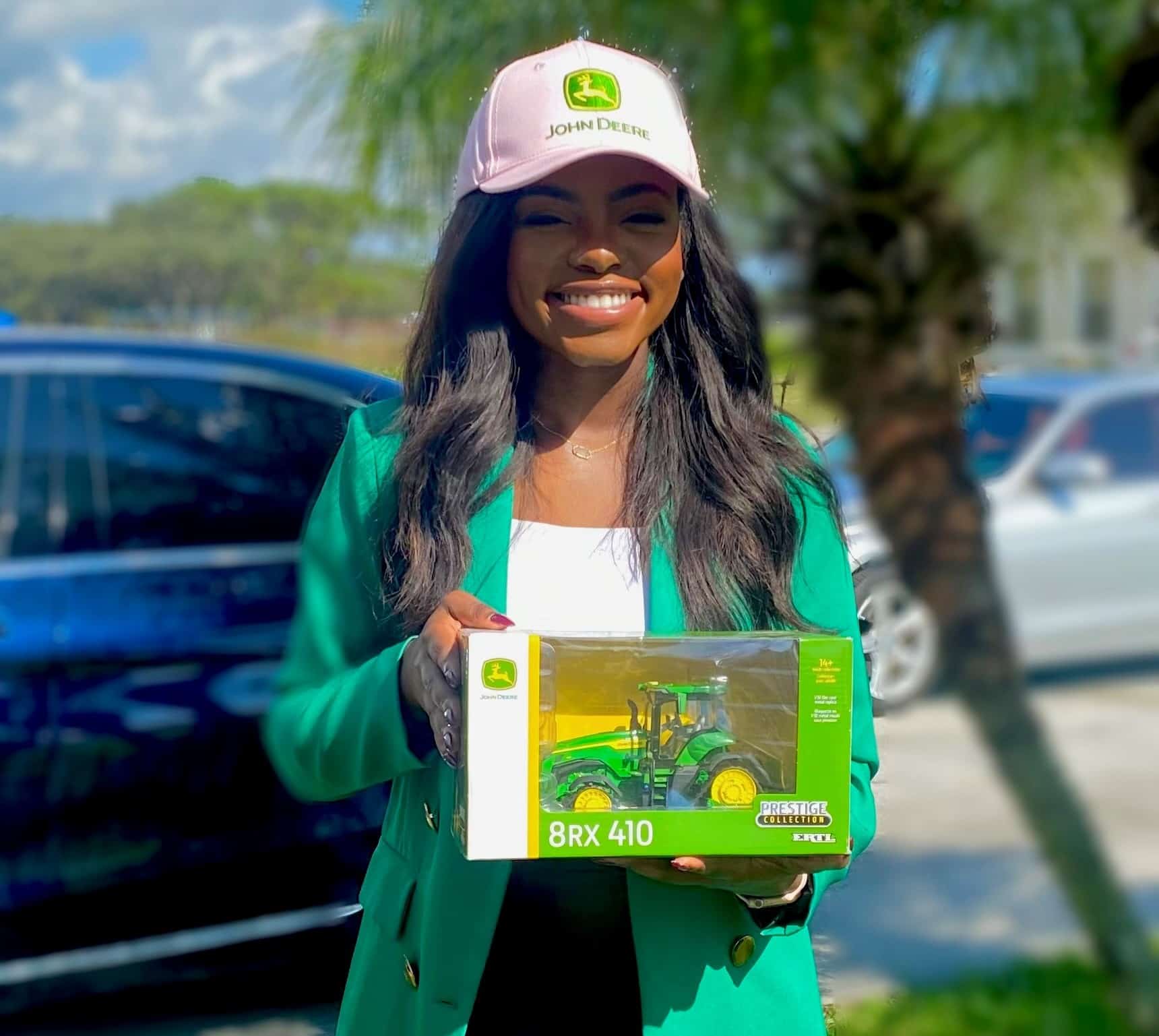For Artha Jonassaint, an FFA member, former national officer and John Deere intern, working in agriculture has been a dream and passion since middle school. Growing up in Okeechobee, Fla, a community where cows outnumber people 4:1, the importance of agriculture was ingrained in her surroundings.
Though initially she wasn’t interested in FFA, she quickly learned she was interested in agriculture with the help of her middle school FFA advisor and the influence of her mother.
Turns out that was only the beginning.
During her FFA career, Jonassaint has not only helped raise dairy cows but also worked with the Florida Department of Health through their nutrition education program, helping others implement healthy dietary habits, and teaching elementary school students about agriculture.
 Despite her achievements, she felt uncomfortable that she was the only student of color. Now, as an adult, her goal is to help diversify production agriculture and make it more inclusive.
Despite her achievements, she felt uncomfortable that she was the only student of color. Now, as an adult, her goal is to help diversify production agriculture and make it more inclusive.
“I’d like to reconnect people of marginalized identities, particularly Black, Indigenous, and Latino populations, with agriculture,” Jonassaint said. “My service in FFA helped show students of these identities that there is a space for them in agriculture, and that their presence is not only invaluable but necessary for agriculture to flourish.”
As her involvement in FFA grew, she eventually met with several John Deere employees, opening a door to an internship with the U.S. Public Affairs team. In this capacity she helps conduct legal research concerning emerging technologies, research and data collection on alternative fuels, and assists with John Deere’s farm bill priorities.
As an intern, she had the opportunity to watch John Deere and Al Roker Entertainment’s documentary “Gaining Ground: The Fight for Black Land” during a private screening in Washington, D.C. The documentary spotlights heirs’ property, which is land jointly owned by descendants of someone who didn’t leave a legal will, thereby leaving them without a clear title. The land is passed to surviving family members by way of fractional ownership – meaning any heir can divide or sell the land. This is the leading cause of involuntary land loss among Black landowners. Other factors include lack of access to resources and information and distrust of judicial and legal systems.
 For John Deere, supporting the film ties to its role in establishing the LEAP Coalition. In partnership with the National Black Growers Council (NBGC) and the Thurgood Marshall College Fund (TMCF), LEAP (Legislation, education advocacy, and production systems) was established in 2020 to “help eliminate barriers created by heirs’ property and provide resources to advance the lives and livelihoods of Black farmers.”
For John Deere, supporting the film ties to its role in establishing the LEAP Coalition. In partnership with the National Black Growers Council (NBGC) and the Thurgood Marshall College Fund (TMCF), LEAP (Legislation, education advocacy, and production systems) was established in 2020 to “help eliminate barriers created by heirs’ property and provide resources to advance the lives and livelihoods of Black farmers.”
As an aspiring attorney and Black agriculturalist, the documentary hit close to home.
“I was inspired by the narratives shared in the documentary to seek litigious solutions and remedies for populations that have faced discrimination and, in turn, have been ostracized from one of the most fundamental industries to human prosperity,” Jonassaint said. “In that space and in those moments, I felt like I encountered my purpose. I knew I belonged at Deere, and I knew I belonged in agriculture.”












